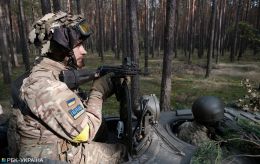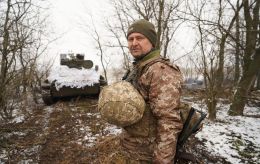Ukraine's Deputy PM Olha Stefanishyna: 'Inviting Ukraine to NATO is element of deterring Russian aggression'
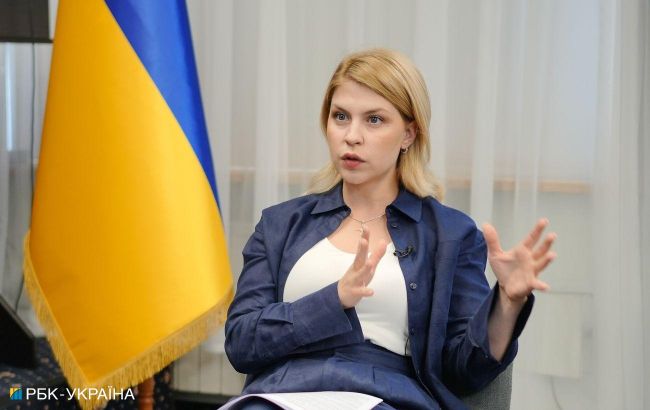 Olha Stefanishyna, Deputy Prime Minister for European and Euro-Atlantic Integration of Ukraine (Photo: RBC-Ukraine, Vitalii Nosach)
Olha Stefanishyna, Deputy Prime Minister for European and Euro-Atlantic Integration of Ukraine (Photo: RBC-Ukraine, Vitalii Nosach)
In an interview with RBC-Ukraine, Deputy Prime Minister for European and Euro-Atlantic Integration Olha Stefanishyna discussed whether Ukraine could become a NATO member before the end of the war with Russia, why Ukraine can be invited to join the Alliance at any moment, and how the negotiations on EU accession are progressing.
This year marked a significant victory on Ukraine's European path – official negotiations for EU membership were initiated. Although this process is complex and heavily bureaucratic, Deputy Prime Minister Olha Stefanishyna has optimistic views on its prospects, although she acknowledges that the most challenging phase is currently underway.
However, RBC-Ukraine began its conversation with her not on European integration but on Euro-Atlantic matters, specifically regarding the latest NATO Summit. Despite some specific practical results in terms of military aid, Ukraine did not receive the most anticipated outcome – an invitation to join NATO. But, as Stefanishyna assures, this issue will not be removed from the agenda.
– Let's start with NATO. Could you please remind us of the key outcomes of the latest summit in Washington: what did Ukraine gain, what did it not receive, and, most importantly, could it have achieved more?
– There are a few things we understand well now, highlighted by the full-scale aggression. We have always demanded decisive steps from NATO, specific military decisions, the closure of the sky, increased air patrols, and coordination of military aid.
We have always heard political excuses, but this path allowed us to deeply understand how the NATO system works. Most decisions are made at the middle military level, where Ukraine is not represented because we are not NATO members. If the system works and decisions are made at all other levels, leaders gather to "bless" them.
When we talk about the results of the Washington Summit, it was a significant success for Ukraine because we created two structures within NATO. The first is a NATO mission within the European Military Command to coordinate military assistance, support, and training. Informally, it’s called NATO Ukraine Command, meaning this is a unit within the military structure of NATO. This structure was created within NATO to coordinate the work of allies and enhance the Ramstein format. Essentially, any political decision we are moving toward or advocating for will be worked through within the existing structure.
So, we now effectively have a Ukraine department within NATO, which is very important. This is primarily a military decision, and this mission has a political mandate. In September, the head of the mission will arrive, and he will be the highest civilian representative of this mission. He is British and was a deputy secretary-general of NATO. His strong political and NATO background makes this a substantial appointment.
At the Washington Summit, we also created another structure. This is the first legal entity between Ukraine and the Alliance – JATEC. It is a joint center for analysis, training, and education, a structure that will interact with the General Staff and allied military forces. This structure is currently deployed in Poland. Representatives from various elements of the Ukrainian Armed Forces and the Ministry of Defense will be delegated there.
An important step for us in the context of membership, especially as a message to the aggressor, is that Ukraine's membership in NATO has been declared "irreversible." This was discussed personally between our President Zelenskyy and President Biden. This is a very important decision because it was reached by consensus, with the understanding that one country "had coffee" at the right moment again. Of course, what remains for the future is the question of inviting Ukraine to NATO.
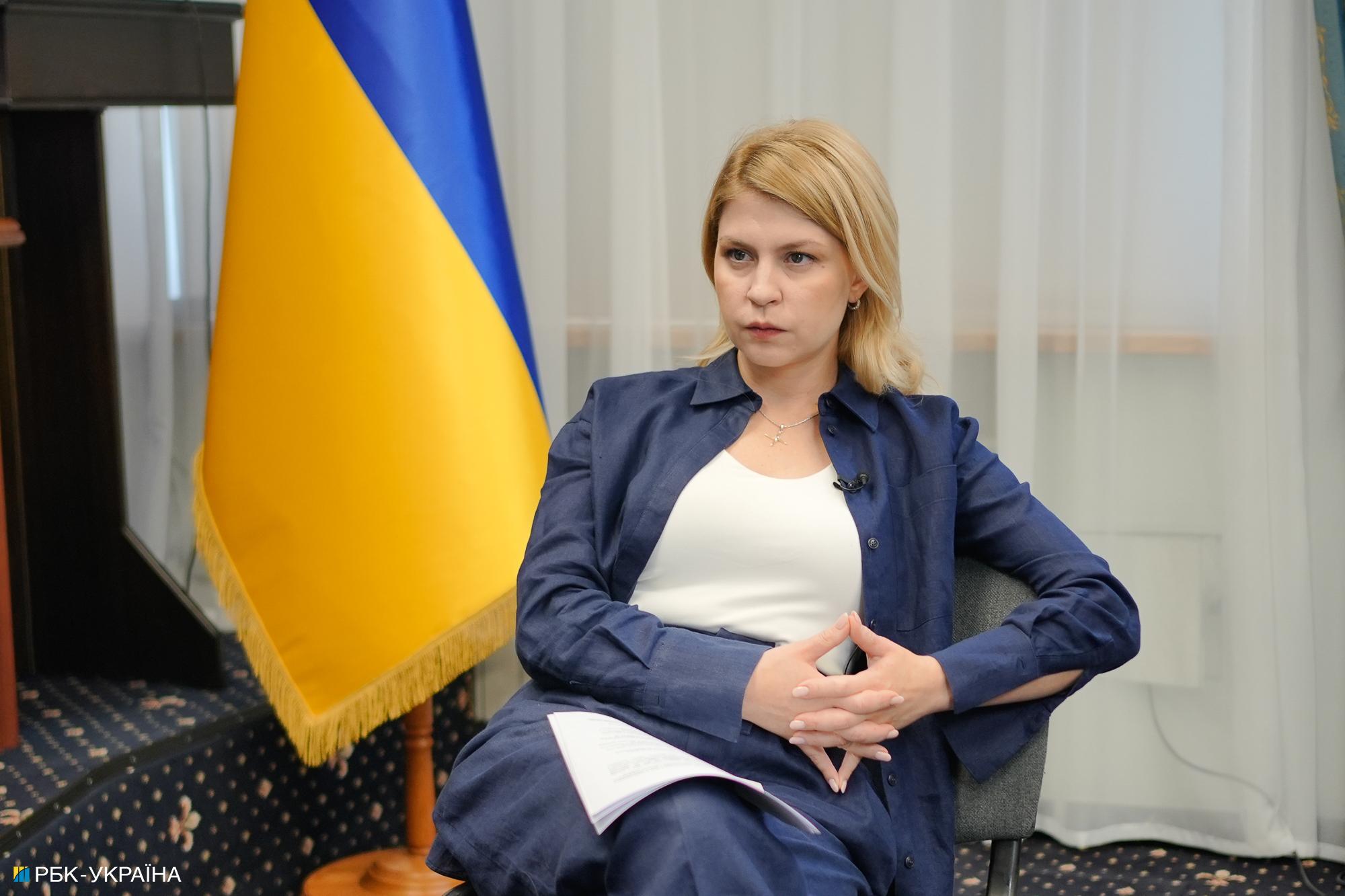
Olha Stefanishyna, Deputy Prime Minister for European and Euro-Atlantic Integration of Ukraine (Photo: RBC-Ukraine, Vitalii Nosach)
– Is this realistic during the active phase of the war?
– If we speak without tying it to Ukraine, the war, or Russian aggression, then theoretically, it could be considered incorrect.
Firstly, Ukraine maintained full administrative and institutional capacity during the war. All branches of government are functioning at all levels, and we are progressing toward membership in the European Union. We are implementing reforms in the country, creating new institutions, strengthening them, and in fact, in the two and a half years of full-scale war, all of our armed forces have transitioned to operating according to NATO standards, principles, approaches, and weaponry.
Undoubtedly, there is a path between the invitation and membership. I think that now is the right time to address this issue. Why? Because we already have some experience of this war as a country. We already know all the capabilities regarding the coordination of military support. We must look to the future and plan more strategically. I am confident that the invitation is precisely an opportunity to form individual agreements with each ally regarding what Ukraine's membership in NATO will look like.
– Next year, the NATO summit will be held in The Hague. Will we once again articulate the issue of an invitation before this summit, pursue it, and count on it?
– We will do this earlier because on October 1st, the new NATO Secretary General takes office, and his first visit to Ukraine will undoubtedly be dedicated to a political decision.
I want to draw attention to the fact that after a country is invited to NATO, the accession protocols are ratified. This requires 32 decisions by each country's parliament, government, or president. We saw this process in Sweden and Finland. Finland went through it instantaneously – this is the so-called Finnish miracle – but Sweden had to implement a number of very difficult decisions on its path to this ratification, and these were not only related to changes in legislation.
The invitation is a serious intention to talk about the future. And, of course, we will not remove this issue from the agenda, and as the President says, it will remain on the agenda for as long as necessary to make a decision.
However, the invitation is also a decision that can be made at any moment, regardless of the summit.
– Two main countries are skeptical about any serious further steps in Ukraine's integration, namely the USA and Germany. What could change for Ukraine and NATO as a structure in the event of a change of power in the White House?
– Ukraine's NATO membership issue will not be removed from the agenda because the allies have determined this path is irreversible. The issue of Ukraine's Euro-Atlantic aspirations has always been on the agenda at all meetings at all levels with colleagues from the USA, and this will not change on the Ukrainian side. I believe that the issue of inviting Ukraine to NATO is, in itself, an element of deterring Russian aggression.
– And not the opposite – not an escalation, right?
– Yes, and it stimulates allies not to distance themselves from the war in the center of Europe. And, let's say, it's a message to allies that the war in Europe is not becoming the norm. So, it's more about our internal work and internal mobilization in Europe.
– Quite often, in discussions about Ukraine's NATO membership, the format of this membership, and its conditions, so-called hybrid options are debated. For example, can it be arranged so that the Alliance's guarantees extend only to the territory that Ukraine controls de facto? Is it possible to discuss such a "piecemeal" entry into NATO?
– I don't believe that Ukraine should propose any solutions before the allies offer Ukrainian membership in the Alliance. Ukraine will listen to all allies and negotiate with each of the 32 NATO member states. We will never raise the issue of certain restrictions or redistributions in the matter of NATO membership. Ukraine is within the borders of 1991, a sovereign, independent country that joins NATO. At the stage when the issue of ratifying the decision on Ukraine's accession to NATO arises, we will communicate with everyone, and this process will be open and public. Still, at this stage, no format has been created between Ukraine and the allies where such discussions could take place.
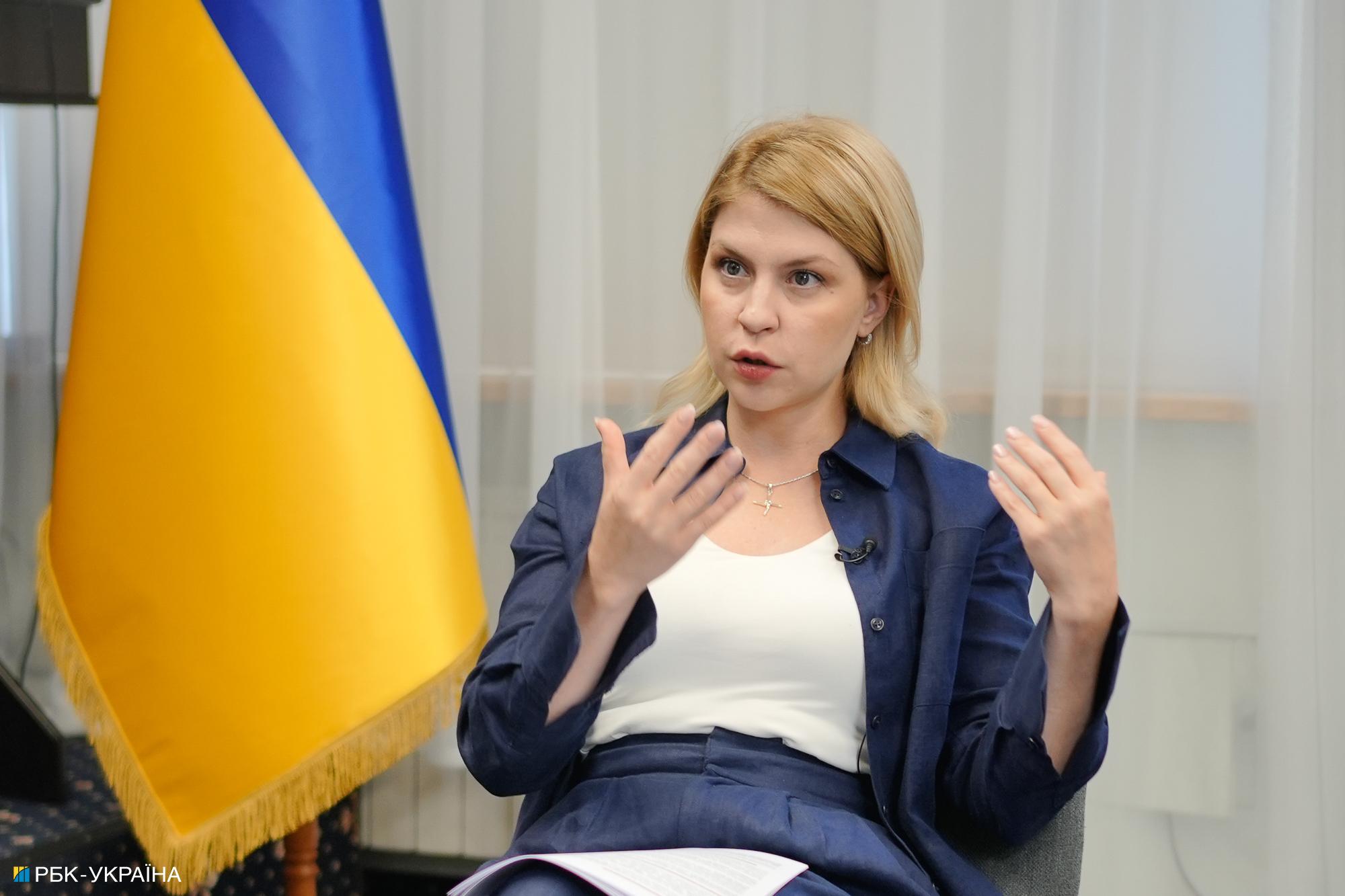
Olha Stefanishyna, Deputy Prime Minister for European and Euro-Atlantic Integration of Ukraine (Photo: RBC-Ukraine, Vitalii Nosach)
– Let's move on to the topic of the European Union. At what stage are we currently in terms of negotiations, and what should we expect in the near future, by the end of this year? What is planned?
– We fully opened the entire negotiation process on June 25 this year. This means that we can negotiate in any number of directions regarding the future agreement on Ukraine's accession to the EU, depending on how capable Ukraine and the European Commission are. We didn't put this process on the back burner. On July 8, after the negotiations had opened, we began bilateral meetings on the screening of legislation.
And now, all bilateral negotiations in all directions are scheduled within a specific calendar for 2024-2025. Negotiations are opened in clusters, which means six to seven chapters according to the direction. In 2025, we will start negotiations on the "fundamental rules" cluster. This is a block without which it's impossible to discuss political decisions. We need to be legally ready to become part of the single market and meet the political criteria of the rule of law. This work is ongoing now, and 2025 may be marked by the fact that we will move to finalizing negotiating positions on all chapters.
This is very difficult because, until now, we only talked about political criteria. You remember the whole country lived by this, all branches of government.
– The seven requirements?
– Yes, and now it's 7,777 requirements. And again, it might not be felt in the public sphere, but this involves thousands and thousands of pages of legal work, hundreds and thousands of directives and regulations currently being analyzed by state agencies, and dozens of meetings happening right now as we sit here and talk. So, the entire state machinery is engaged today. That's why the government created 36 negotiating groups to organize and coordinate this process properly. We are building our capacity. Such capacity is also being formed in the European Commission.
But I would like to explain to our citizens that, in fact, the most difficult stage of negotiations is happening right now, when both Ukraine and the European Union are identifying our gaps, where we still fall short. The scope of obligations is being formed. This is not so much a negotiation process as it is a comparison of systems. It's like, figuratively speaking, having a broad-gauge railway and a narrow-gauge railway, and we need to ensure the movement of all transport.
– We have already encountered some problems and understood that the path of European integration is not just about our internal issues. There are also direct clashes of national interests, as was the case with the Poles. As European integration deepens, will there be more such issues with farmers, pharmacists, metallurgists, and confectioners? Does the government know how to handle them?
– We have already made some decisions. The first is building new neighborly relations with neighboring countries, including Poland, Slovakia, Hungary, the Czech Republic, Romania, and others. I liked how President Zelenskyy talked about his communication with President Duda. We have difficult chapters in our history, and they currently have a rather challenging political situation and a very turbulent political life, but the very fact that the president invited President Duda, who came and discussed all these issues, elevates the discussion to a higher intellectual agenda, which is above emotions and current problems. This is the principle of building all relationships with Hungary and Slovakia.
Undoubtedly, we now understand that friendship is friendship, support is support, but the interests of each economy are purely a matter of work. And let's not forget that Ukraine is the largest country in Europe, with one of the most capable markets, which has maintained its functionality even during the war, now for the third year in a row. This is a huge advantage, a huge competitiveness.
As a whole team, we are entering the market, primarily Eastern Europe. We will effectively be the third team on the field.
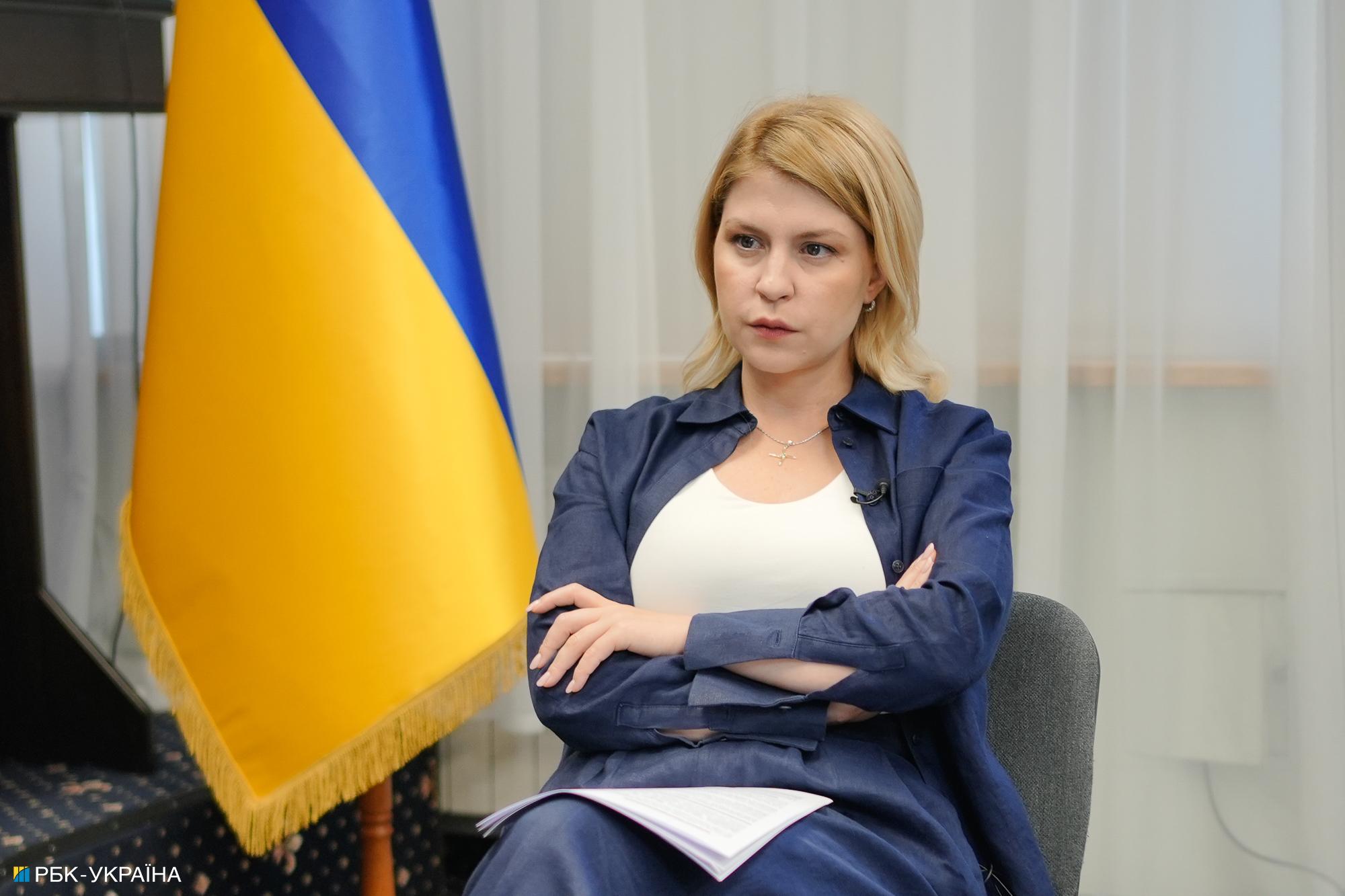
Olha Stefanishyna, Deputy Prime Minister for European and Euro-Atlantic Integration of Ukraine (Photo: RBC-Ukraine, Vitalii Nosach)
– Is there an understanding of how significant the potential problems could be that Hungary and its government might create for Ukraine?
– I believe that the most significant achievement of our European integration team is that the issue of the rights of national minorities has become a subject of bilateral negotiations.
This means that, in fact, Hungary today does not have a radical influence on decisions at the EU level through speculations on the issues of national minorities. There was a bilateral dialogue, and I believe it was quite successful because, after all, Prime Minister Orbán came to Ukraine. This issue did not become a barrier when he had the opportunity to visit.
However, I am very concerned about other issues, particularly Hungary's quite successful blocking of decisions regarding military assistance. I will raise all these issues in September when I am in Brussels. I believe the EU needs to revitalize its functioning because of many initiatives. Still, they are all wrapped up in the security agreement signed by the EU and the Ukraine President. And this agreement needs to be implemented comprehensively.
It seems to me that Hungary's blocking should no longer be an excuse for the inefficiency of certain decisions currently being implemented in the EU.
– Ukrainian high-ranking officials, especially those directly involved in EU and NATO integration, generally dislike questions about timelines, but these questions genuinely concern large segments of society. So, when should we realistically expect to be in the EU and NATO?
– It depends on the end of the war, on our victory, but my specific task is to create conditions that will allow a political decision to be made at any moment.
And this concerns negotiations as well. Under the best political and geopolitical circumstances, we may not be in a position to make a political decision. My task is to create the prerequisites for making political decisions related to membership by 2024-2025, ideally by the beginning of 2025. This includes opening all negotiation chapters, defining the scope of obligations, and understanding that we are already in the process—this is our homework. Similarly, regarding NATO, it is about inviting Ukraine to join NATO. These are two tools that allow decisions to be made at any moment.
Therefore, this is my work 24/7. It's all I can do in addition to the efforts of the President, the entire government, the parliamentary team, and the President's Office team in our movement toward victory. It's a tremendous amount of work. So, with this pretext, I can say that we are doing everything possible to make it happen at any moment.
